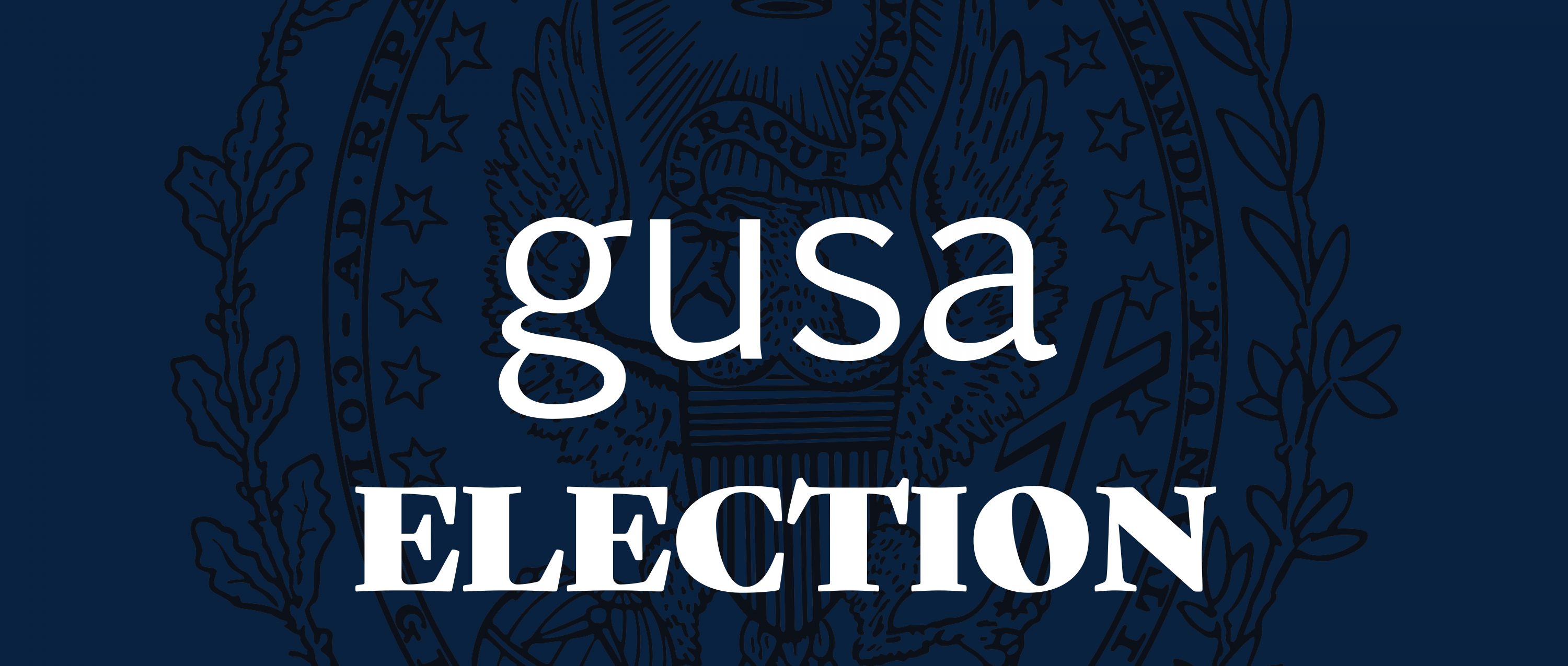GUSA elections opened up Thursday at 10 p.m. for students to vote on at-large GUSA senators, class of 2025 representatives, and a referendum to restructure GUSA.
There are twenty-one first-years competing for seven positions as class of 2025 senators and four candidates running for at-large Senate seats. First-year GUSA candidates are campaigning on platforms related to dining, racial equity, mental health, and student safety.
For the class of 2025, their first semester on the Hilltop has been defined by new friends and Georgetown classes, but also COVID-19, a norovirus outbreak, and an intruder in New South. For the new GUSA candidates, university transparency about these issues is a top priority.
Chijioke Achebe (SFS ’25) acknowledged that most first-year candidates are campaigning over the same issues. “The truth is, you are not going to see a lot of daylight between me and other candidates,” Achebe said. “No one wants to be poisoned at Leo’s; no one wants mold in their room.”
Anthony Duan (COL ’25) described the norovirus as a main reason for running. “A spectre is haunting Georgetown, and that spectre is norovirus, and it haunted me too,” Duan wrote in an email to the Voice. Duan is running to hold the university accountable for student health. “We need a better evidence-based approach towards public health which emphasizes transparent decision-making.”
Candidates brought up student safety concerns and university transparency after an intruder entered New South in September. “There was a person in my dorm about 100 feet away from me while sleeping with my door unlocked, and I didn’t find out until later through Instagram, not even through the school actually telling me,” Matt Shinnick (COL ’25) said. “Acting like it’s something normal is just fundamentally terrifying for me, because these things aren’t normal—they shouldn’t be treated as something that’s okay.”
Other candidates, like Bayla Huff (COL ’25), are focusing on issues that have long been priorities to students. Huff’s platform centers on accessible mental health resources for students, free printing, and a contract dining company to replace Aramark that does not rely on prison labor.
“In my career I want to do mental health advocacy, so I see this as a good way to start,” Huff said. Huff also brought up pushing the university to better reconcile with its slave-holding history.
In addition to student health and safety, Sanji Ranganathan (SFS ’25) is running to push for greater action following the 2019 GU272 referendum. In addition to pushing the university to fulfill the referendum’s demands, Ranganathan hopes GUSA can also work with existing racial justice efforts. “After all, it is students that have pushed forth many of the progressive changes at Georgetown,” Ranganathan wrote in an email to the Voice. “I would also be eager to see GUSA create racial justice education materials and offer them to professors and students.”
Ranganathan also brought up GUSA’s sustainability initiatives, such as reducing one-use materials in Leos and pushing for composting programs, as a priority. Achebe brought up other issues, such as GUPD oversight and the way grades are calculated at Georgetown. Achebe already serves on the student safety advisory board, but wants to emphasize GUPD accountability within GUSA. Achebe emphasized GUSA transparency and direct communication with the student body. “A lot of people think GUSA is something like a joke, but I don’t think it has to be,” Achebe said.
Financial aid is also a main concern for candidates like Sydney Abele (COL ’25), John DiPierri (SFS ’25), and Huff. “One of my top priorities is exposure for the issues in the financial aid process for low-income students,” Abele said. DiPierri and Huff suggested free printing services to relieve financial strain on students. Abele also suggested expanding GUSA funding systems to help students with costs not covered through financial aid or private loans. “Travel, club fees, are covered by students and their families. I know this can be a really big burden.”
Class of 2025 candidates also commented on the restructure referendum students are voting on this weekend. “The existing structure of GUSA prevents the organization from instituting meaningful change,” Ranganathan wrote. “I support restructuring GUSA to create a student forum that can truly advocate and enact the policies that Hoyas care about.”
Some first-year candidates favored the referendum, but wished it had been communicated more clearly to students. Phoebe Chambers (COL ’25) is frustrated by the current bureaucratic structure of GUSA and supports its reform. Chambers expressed, however, that many students are unaware of the referendum’s functions. “I am someone who is pretty engaged in campus politics, and I did not understand it until like a week ago,” Chambers said. “Most members of the class of 2025 have no idea how GUSA works and how we are changing the structure. A lot of people don’t know what that means.”
Claire Denault (COL ’25), a first-year running for GUSA Senate, is already involved in the referendum as a student representative to the Ethics and Oversight Committee. While supporting the referendum, Denault admitted it could be clearer. “I believe that GUSA could accomplish a lot of important and meaningful work with the proposed structure,” Denault wrote in an email to the Voice. “I think that it’s a great idea that needs to be communicated to the student body more clearly.”
With 21 candidates running to be representatives, only seven first years will be elected as GUSA senators. Four at-large senators are elected from students in the class of 2022 through 2024. There are four candidates, Manahal Fazal (SFS ’24), Spencer Woodall (MSB, SFS ’24), Alyssa Hirai (SFS ’24), and Johnny Sussek (COL ’24), seeking the seats. Fazal, who is currently an at-large senator and FinApp liaison, is seeking reelection.
Ballots are open until 11:55 p.m. on Saturday, Nov. 6. The GUSA Election Commission will release election results.
Franzi Wild contributed to this report.







